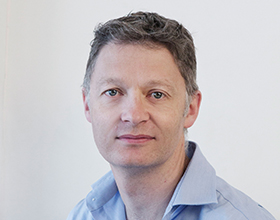
Machine learning, also known as artificial intelligence, could be a useful tool for predicting how well people at high risk of psychosis or with recent onset depression will function socially in the future, an international research study has found.
The research team, led in Australia by Professor Stephen Wood from Orygen, the National Centre of Excellence in Youth Mental Health, evaluated whether clinical, neuroimaging-based, or machine-learning methods could better predict patients’ social outcomes (e.g., their ability to undertake social interactions, or create and maintain relationships with others) than methods currently in use. In all three approaches the results of brain imaging and clinical measures from client interviews were analysed.
Professor Wood said the research team found that machine learning outperformed human experts and could correctly predict social outcomes one year later in up to 83 per cent of patients in clinical high-risk states for psychosis and 70 per cent of patients with recent-onset depression.
“Predicting social outcomes is important as among young people and emerging adults in OECD countries the top causes of ‘disability’ – and poor social functioning is included in that – are mostly disorders of mental health, including those that typically present with a first episode of psychosis,” Professor Wood said.
“By being able to better predict what will happen to people at high risk of psychosis or with recent onset depression over time, we are able to provide individualised treatments to clients when they first present to mental health services and potentially improve their social functioning.
For the study the research team followed 116 people at clinical high-risk of developing psychosis and 120 people experiencing recent onset depression aged 15 to 40, as well as 176 healthy control participants.
The research has been published today in the journal JAMA Psychiatry. It was funded by the European Union’s 7th Framework Programme, the National Health and Medical Research Council of Australia and the European Union National Health and Medical Research Council.